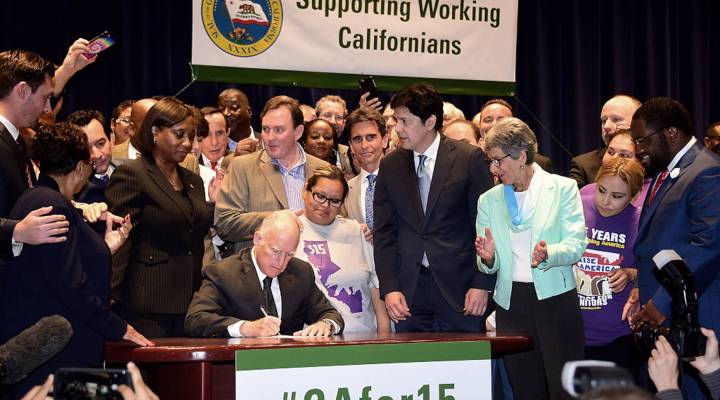
There is a patchwork of minimum wages across the U.S.

Congress hasn’t raised the federal minimum wage — now $7.25-an-hour — since 2009. But many states and localities have, and there will be new minimum wage hikes in lots of places around the country starting on Jan. 1.
Some of the rates are indexed to inflation, or vary by business-size, or location. What does this mean for businesses, and for workers? The answer depends on who you talk to.
The patchwork effect is “wildly confusing” for businesses, according to Michael Saltsman of the Employment Policies Institute, which is supported, in part, by the restaurant industry. And it may force businesses that can’t raise prices to close, or move across the border to a state with a lower minimum wage, he said.
But economist William Rodgers, at Rutgers University, doesn’t think that’s likely to happen very often. Plus, retail and restaurant businesses may actually get a boost from higher spending by low-wage workers — as their wages rise — so they can spend more money on groceries, or clothing, he said.
Click the audio player above for the full story.
There’s a lot happening in the world. Through it all, Marketplace is here for you.
You rely on Marketplace to break down the world’s events and tell you how it affects you in a fact-based, approachable way. We rely on your financial support to keep making that possible.
Your donation today powers the independent journalism that you rely on. For just $5/month, you can help sustain Marketplace so we can keep reporting on the things that matter to you.












